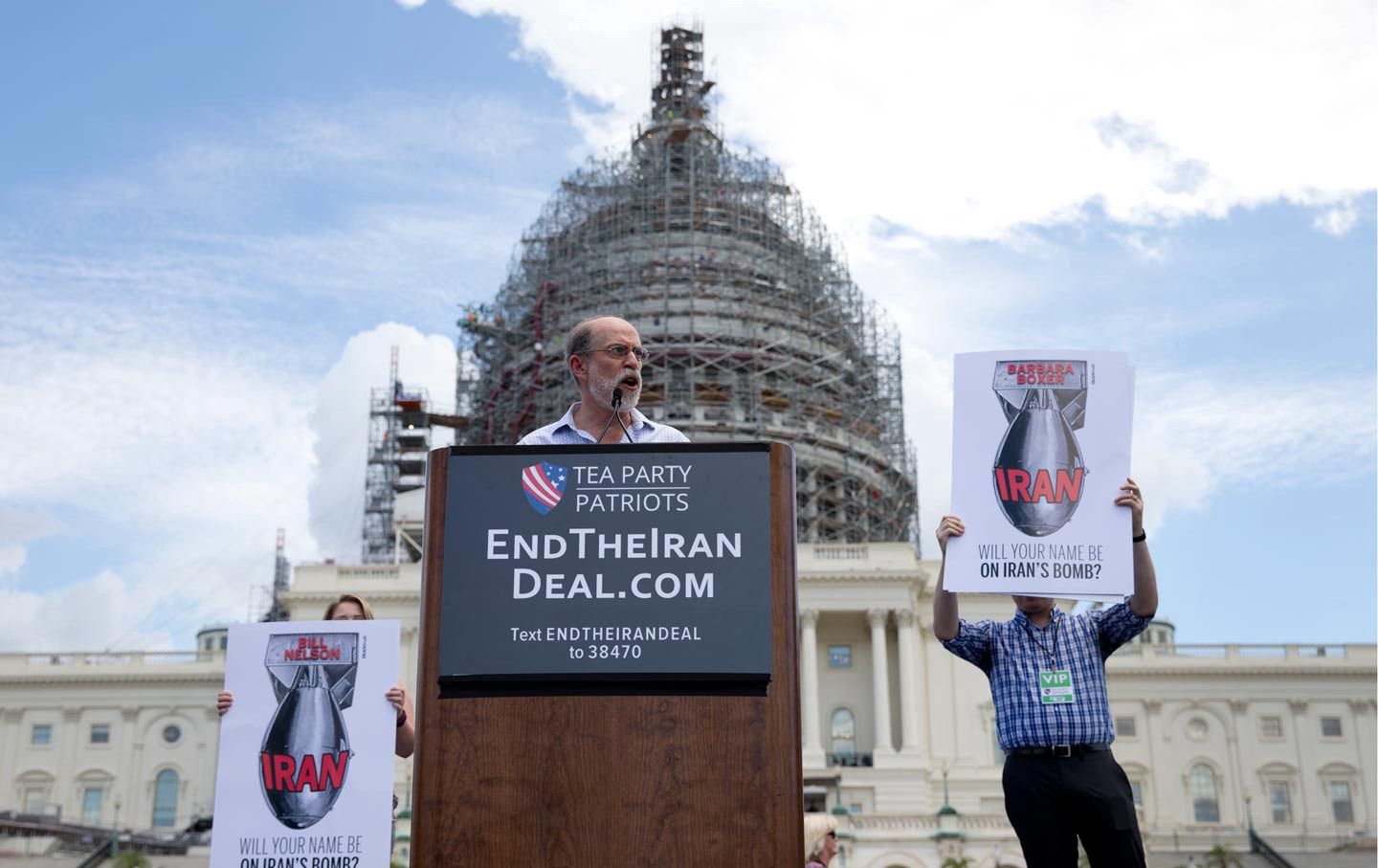The Republican primaries have represented a veritable political orgasm in the mainstreaming of xenophobia. And the two leading GOP candidates, Donald Trump and Ted Cruz, have been quick to grab as much political capital as possible from recent terrorist attacks, including the coordinated bombings in Brussels on 22nd March 2016.
Within hours, Cruz told his Facebook followers that US police forces needed to specifically patrol “Muslim neighbourhoods” to “prevent” them being radicalised.
Eager not to be outdone, the next day Trump told Good Morning Britain host Piers Morgan that the Brussels attacks occurred because Muslims in Britain, Europe and the United States are “absolutely not reporting” signs of extremism to the authorities.
This escalating trajectory toward xenophobia is no accident, but a product of the networks of power courting both Donald Trump and Ted Cruz.
A close inspection confirms that far from comprising fringe groups, these networks encompass a narrow set of interlocking commercial, ideological, energy and military interests — a nexus illustrating how mainstream centres of power in America are increasingly converging with a binary ‘Us and Them’ worldview.
Gaffney’s finger in Cruz’s pie
Joining Ted Cruz’s team as a national security advisor, we have the notorious anti-Muslim conspiracy theorist, Frank Gaffney, founding president of the Centre for Security Policy (CSP), which this year was designated an extremist hate group by the Southern Poverty Law Centre.
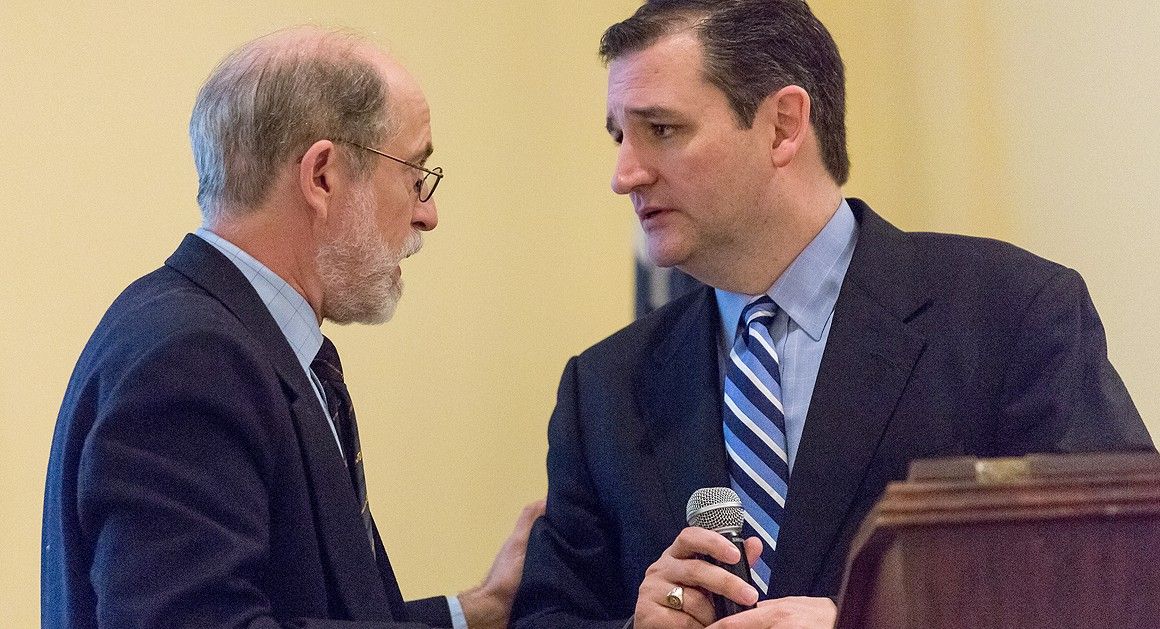
It’s well-known that Frank Gaffney, a former assistant secretary of defence under Reagan, was behind the unreliable opinion poll justifying Trump’s call to ban all Muslim immigration to the United States.
Less well-known are the interests that Gaffney represents.
Cruz recruited three other Gaffney employees to his team, namely former CIA officers Fred Fleitz and Clare Lopez, and former US Army Special Forces Master Sergeant Jim Hanson, along with two neoconservative stalwarts who were members of CSP’s National Security Advisory Council: former Reagan official Michael Ledeen, and former George W. Bush senior national security official Elliot Abrams, who was convicted in 1991 of unlawfully withholding information from Congress over the Iran-Contra scandal, the illegal arms-for-hostages deal with Iran.
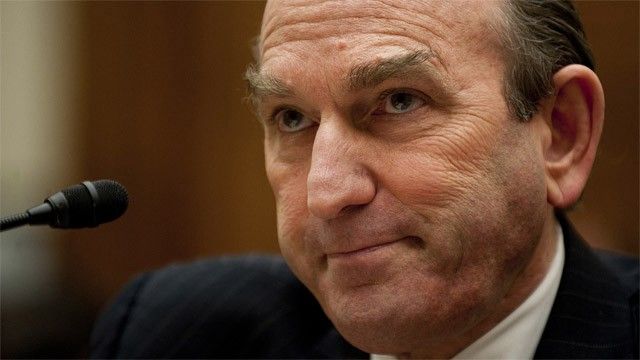
According to the National Catholic Reporter, Abrams still “owes the American people a detailed account of his tenure as President Reagan’s chief of US policy in Latin America… During that period, massacres occurred in El Salvador. Genocide, in the words of the UN truth commission report, was carried out in Guatemala. Further, the United States government contributed to the undermining of a legitimately elected government in Nicaragua.”
As an ex-Reagan National Security Council staffer, Michael Ledeen also helped initiate the illegal Iran-Contra affair. “We do not want stability in Iran, Iraq, Syria, Lebanon, and even Saudi Arabia; we want things to change,” wrote Ledeen in the Wall Street Journal in 2002. “The real issue is not whether, but how to destabilize.”
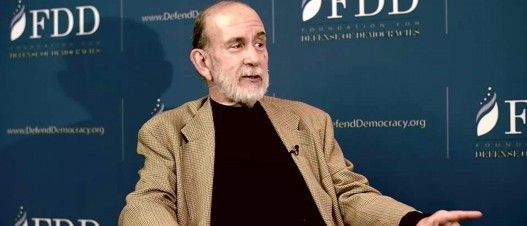
Elaborating in National Review, Ledeen wrote:
“One can only hope that we turn the region into a cauldron, and faster, please. If ever there were a region that richly deserved being cauldronized, it is the Middle East today. If we wage the war effectively, we will bring down the terror regimes in Iraq, Iran, and Syria, and either bring down the Saudi monarchy or force it to abandon its global assembly line to indoctrinate young terrorists.”
Gaffney’s finger in Trump’s pie
Although Gaffney is Cruz’s national security advisor, his ideological influence extends deep inside the Trump camp — and not just because Trump cited his fraudulent anti-Muslim poll.
Joining Trump’s foreign policy team is another notorious anti-Muslim conspiracy theorist, Walid Phares, who is also linked to Gaffney’s CSP.
A former senior political leader of the Lebanese-Christian militia responsible for massacres and war crimes during the Lebanese Civil War, Phares is a regular guest on Gaffney’s CSP radio show, Secure Freedom.
Phares was a featured expert for the inflammatory 2008 film, The Third Jihad, produced by the Clarion Project, described by the Southern Poverty Law Centre as an anti-Muslim hate group. The film propagated the idea of a Muslim-American “cultural jihad” whereby “much of Muslim leadership” aims to “infiltrate and dominate” the US.
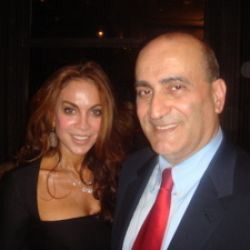
When the New York Times revealed that the film had been used in NYPD training sessions for police officers, the newspaper noted that Clarion “shares offices with Aish HaTorah, an Israeli organization that opposes any territorial concessions on the West Bank. The producer of ‘The Third Jihad,’ Raphael Shore, also works with Aish HaTorah.”
At this time, Clarion listed its advisory board members as including Frank Gaffney and Daniel Pipes, who “often espouses extremist views, some of which border on racism” according to the Institute for Policy Studies’ RightWeb. As of 2014, Clarion removed most information about its leadership from its website.
Joining Phares on Trump’s national security team is yet another Gaffney acolyte, former George W. Bush official Joseph Schmitz, a former Pentagon inspector general who went on to become a senior executive for Blackwater Worldwide — the private defence contractor whose mercenaries massacred 17 Iraqi civilians in Nisour Square in Baghdad in 2007.
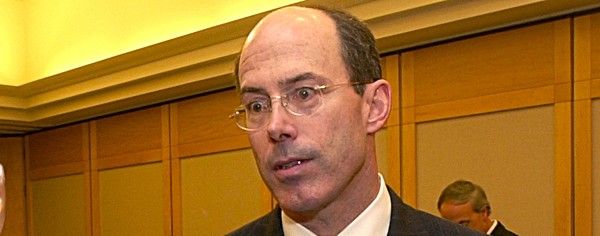
During his stint in government, according to the Los Angeles Times:
“Schmitz slowed or blocked investigations of senior Bush administration officials, spent taxpayer money on pet projects and accepted gifts that may have violated ethics guidelines.”
Later, Schmitz acquired the distinction of co-authoring with former CIA director James Woolsey a ‘report’ for Gaffney’s CSP, Sharia: The Threat to America(coincidentally compiled by current Ted Cruz adviser Claire Lopez).
The 2010 report (debunked by the Center for American Progress) advanced Gaffney’s oft-vocalised thesis that Europe and America are at risk of conquest through stealth “civilisation jihad,” spearheaded by Muslim minorities who parade themselves as ‘moderates’ to conceal their real role as a jihadist fifth column for the Muslim Brotherhood.
After joining the Trump team, Schmitz remains attached to Gaffney’s CSP as a senior fellow, despite the latter’s appointment to the Cruz campaign.
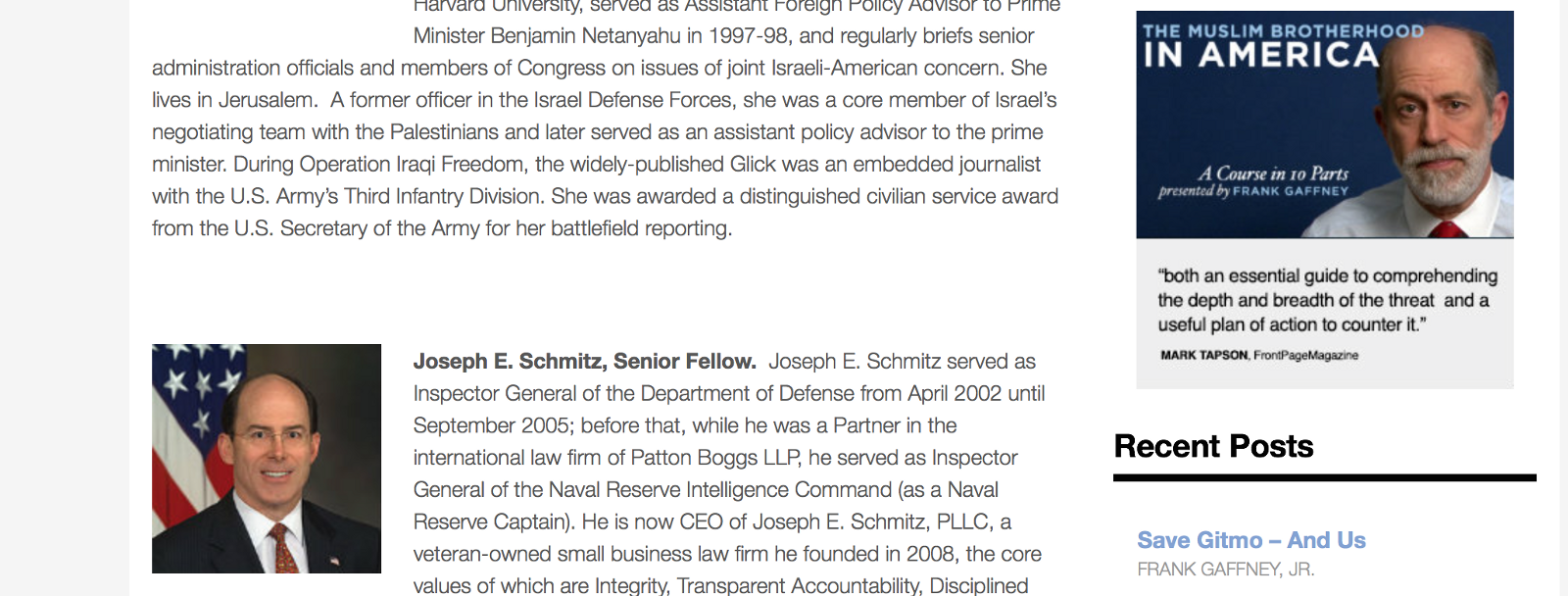
Saudi oil shill
Trump’s energy security advisor is George Papadopoulos, a junior oil consultant formerly at the Hudson Institute, where he fed into a US-Israel-Egypt joint strategy to access Eastern Mediterranean offshore gas resources.
Papadopoulos advised Ben Carson’s similarly xenophobic presidential campaign, until the latter dropped out of the race.

But more intriguing are the array of interests Papadopoulos stands for — rather than his relative inexperience.
He is Director of the Centre for International Energy and Natural Resources Law at the London Centre for International Law Practice (LCILP), a law firm particularly active in representing Western corporate energy interests in the Muslim world.
This March, Papadopoulos’s LCILP organised its first annual conference on Energy Arbitration and Dispute Resolution in Middle East and Africa, whose co-organiser and regional partner was the Saudi Law Training Centre in Jeddah. The latter was set up by the Saudi Kingdom’s Ministry of Justice to improve “efficiency and performance” of judges in Shari’ah rulings.
The Saudi Law Training Centre is run by the Saudi-based ‘Law Firm of Majed M. Garoub’, which in 2012 received an award for services to “justice” from the Supreme Judicial Council — the highest authority in the kingdom’s judicial system. Last year, Papadopoulos’ LCILP also signed a memorandum of understanding with both these Saudi firms to “collaborate” on training and consultancy.

Other partners of LCILP’s Middle East energy conference included the Arab Bankers Association, which describes itself as leading “straight to the heart of London’s Middle East financial scene”, and the Middle East Association, the UK’s main business forum promoting trade and investment in the region.
So Trump wants to ban Muslim immigration from the US — but he sure as hell is making sure that one of his foreign policy advisors is plugged into the financial heart of the Muslim world: especially Saudi Arabia.
Friend of Saudi oil shills
Carter W. Page, another Trump energy advisor, is a former chief operating officer for investment bank Merill Lynch’s Energy and Power Group, where he consulted for the Russian state-controlled energy giant, Gazprom. Like Papadopoulos, Page is not in himself an especially big player — but his social networks speak volumes.

He is now a partner at New York-based private equity fund, Global Energy Capital (GEC) LLC, which he co-founded with fellow managing partner James Richard, formerly of US equity hedge fund management firm Firebird Management, which specialises in energy investments in Russia and eastern Europe.
Six months after 9/11, James Richard co-authored a piece in Foreign Affairs about the need for the US to balance competition between Russia and Saudi Arabia over global energy dominance. His co-author was Edward L. Morse, former Deputy Assistant Secretary for International Energy Policy under the Carter and Reagan administrations, and currently global head of commodities at Citigroup.
A decade later, Morse surfaced again in relation to a major international money-laundering operation involving a Saudi-linked energy firm that would later employ a mutual colleague of Carter Page and James Richard: Erik Miekle.
Richard, while a partner at Carter Page’s GEC, is simultaneously a partner at investment firm Namir Capital Management, which he co-founded with managing partner Erik Mielke.
Mielke himself was previously Page’s colleague at Merrill Lynch, heading up energy research on Russia and Eastern Europe, before moving on to direct US oil and gas equities. In 2012, Mielke became Vice President for Business Development at Buried Hill Energy, an oil company with rights to Turkmenistan’s Serdar field in the Caspian Sea.
Three years earlier, though, Buried Hill Energy had been implicated in a fraudulent investment from a Malaysian government development fund, 1MDB. In 2009, the fund loaned $1 billion to private Saudi investment company, PetroSaudi International Ltd, owned by the late King Abdullah’s son, Prince Turki bin Abdullah Abdulaziz.
PetroSaudi is now being investigated by the Swiss and Singapore authorities, along with the FBI and UK Serious Fraud Office, for facilitating money-laundering on a scale of a billion plus dollars from Malaysia’s 1MDB fund.
The Malaysian government’s 2009 loan was supposed to develop PetroSaudi’s Caspian Sea assets — which were, in reality, non-existent. Documents from Erik Miekle’s firm, Buried Hill, showed that the company had instead signed a ‘farm-in’ negotiation with PetroSaudi in July 2009, which was then terminated in November 2009. The documents proved that PetroSaudi had never owned any rights to the Turkmenistan field.
Nevertheless, in September 2009, PetroSaudi hired Edward Morse to produce a completely false $2.9 billion valuation of PetroSaudi’s supposed Turkmenistan field, which was in fact entirely controlled by Buried Hill Energy. The fraudulent valuation justified 1MDB’s billion dollar injection into PetroSaudi, money that has ended up disappearing via the Cayman Islands.
Carter Page was not involved in this — but such is the illustrious company he keeps.
Also, entirely by coincidence of course, a British law firm — White & Case — was hired by PetroSaudi to manage the 1MDB negotiations at its London offices, and to draft the relevant documents. White & Case was also a sponsoring partner of the Middle East energy conference organised in March by the LCILP, the law firm that employs Donald Trump’s other foreign policy advisor, George Papadopoulos.
The contractor
Trump’s foreign policy team includes retired US Army lieutenant general, Joseph Keith Kellogg, the US military’s top information technology official during the Bush administration’s invasion of Iraq in 2003.
He went on to become chief operating officer for the Coalition Provisional Authority in Baghdad, the mechanism for the US occupation of Iraq, from November 2003 to March 2004 — the period widely recognised as being particularly corrupt and inept.
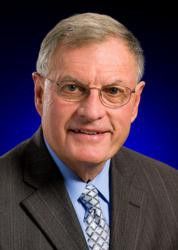
In between, Kellogg had joined the board of directors of US government IT contractor, GTSI Corp, where he returned as an independent director after his Iraq stint from 2004 until 2013 — when the firm changed its name to ‘UNICOM Government Inc.’ in an attempt to distance itself from earlier revelations of misconduct.
Kellogg later joined the Advisory Board of US defence contractor Raytheon’s Trusted Computer Solutions Inc., and the Strategic Advisory Board of RedXDefence, a US military contractor part-owned by Regina Dugan, former director of the Pentagon’s Defense and Advanced Research Projects Agency (DARPA).
In 2012, Wired magazine outed RedXDefense for creating completely rubbish bomb detection technology under a multi-million dollar DARPA contract during Dugan’s tenure. Despite its flaws, the tech was purchased widely by the US military, and numerous allied militaries around the world.
Thanks DARPA, thanks Dugan, thanks Kellogg, thanks Trump, and God Bless America.
The “least racist person on Earth” appoints man with “history of making racially charged comments”
The first quote above is how Trump describes himself. The second is how US media watchdog Media Matters describes Trump appointee, Senator Jeff Sessions.
Long before Trump publicly announced his national security committee, Senator Sessions was identified as its chair.
The Republican lawmaker from Alabama is a supporter of the Iraq War, an anti-abortion fundamentalist, and a rabid opponent of gay marriage. According to a disturbing investigation by the New Republic, though, he also appears to be a closet racist.
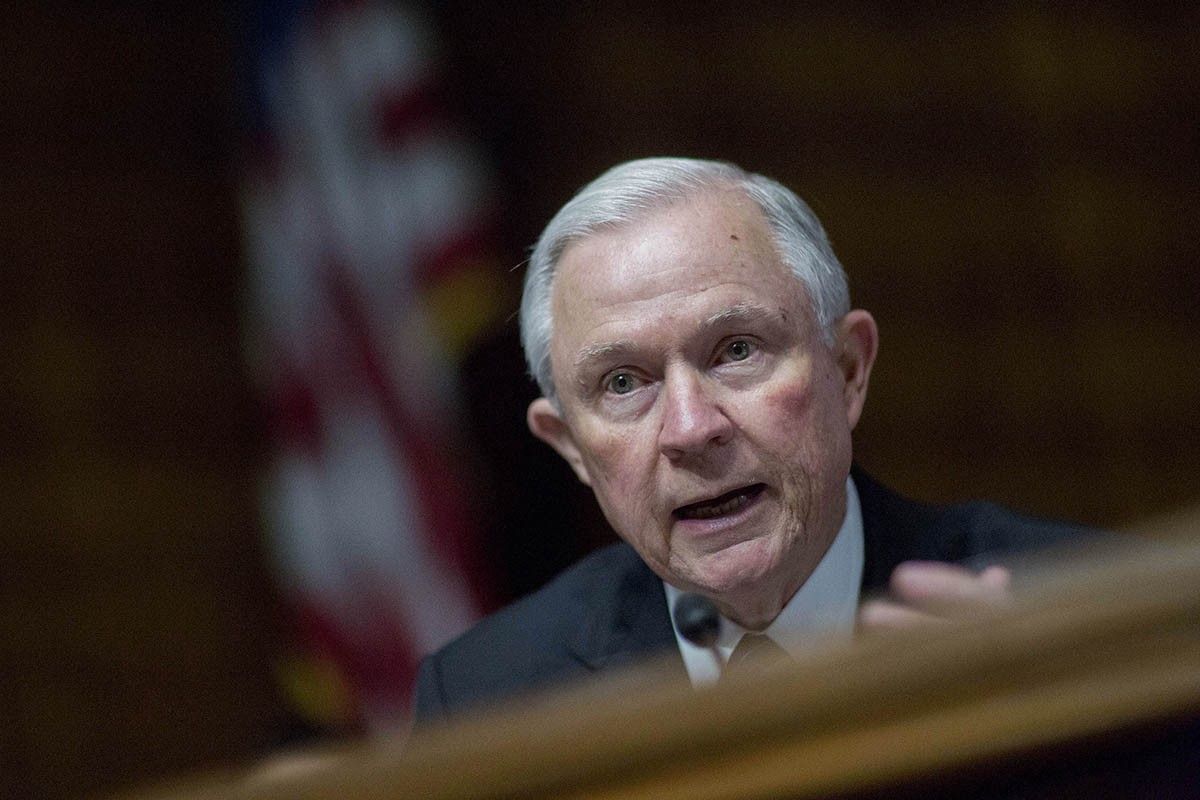
A Justice Department lawyer, J. Gerald Hebert, testified in Sessions’ confirmation hearing that in private conversations, “Sessions had labeled the National Association for the Advancement of Colored People (NAACP) and the American Civil Liberties Union (ACLU) ‘un-American’ and ‘Communist-inspired’” and “forced civil rights down the throats of people.”
Hebert also testified that Senator Sessions had once called a white civil rights lawyer a “disgrace to his race” for litigating voting rights cases. Another witness, Thomas Figures — a black former assistant US Attorney in Alabama — testified that during a 1981 murder investigation involving the Ku Klux Klan, Sessions was heard by several colleagues commenting that he “used to think they [the Klan] were OK” until he discovered some members were “pot smokers.” Sessions had proceeded to call Figures “boy,” and after overhearing him chastise a secretary, told the black attorney to “be careful what you say to white folks.”
Senator Jeff Sessions claimed that many of these racist statements were just jokes, but revealingly, he stood behind his description of the 1965 Voting Rights Act — which for the first time outlawed the denial of African Americans’ rights to vote — as a “piece of intrusive legislation.”
None of this has prevented Senator Sessions from growing into somewhat of a US military contractor favourite.
In the last campaign cycle, Sessions received donations from employees of the most prominent private defence firms, including Northrup Grumman, Boeing, Lockheed Martin, Raytheon, and United Technologies — not to mention oil interests like Koch Industries and ExxonMobil.
Follow the money
Both Ted Cruz and Donald Trump attempt to appeal to the average hardworking American with populist ‘straight-talking’ rhetoric about how hard they intend to fight the ‘war on terror.’
Yet concealed between the lines is the fact that the interests they represent are, simply, Big Money, Big Oil and Big Guns. Which raises the question as to why some of the most powerful and richest people in the US have no qualms with funding candidates who promote bigotry toward Muslims, black people, Latinos, and gay people.
According to federal election data compiled by the Centre for Responsive Politics, Cruz’s largest campaign donors are the billionaire Wilks brothers, who made their fortune selling their shale fracking business.
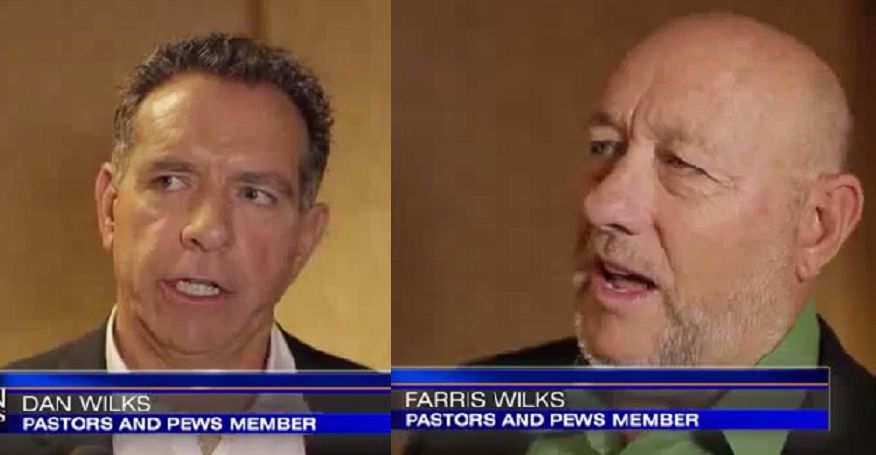
The Wilks brothers’ family church in Texas, the Assembly of Yahweh, advocates biblical literalism, follows Old Testament dietary regulations, and celebrates Jewish holidays, but is against celebrating “gentile” holidays like Christmas, Easter, Valentine’s Day, Good Friday and Halloween.
The Wilks also aim to bring the Bible back into schools to counter what they call “the gay agenda,” and believe that the election of President Obama may have been a sign of the rapidly approaching “End Times.”
Out of all the candidates, Cruz is by far most favoured by Big Oil, having received $1,340,61 in campaign donations from American energy and mining companies — almost double what his Democrat opponent Hillary Clinton has received ($793,979).
Cruz has also received substantive donations from the employees or owners of major Wall Street firms. That includes Renaissance Technologies, one of the world’s most successful and secretive hedge funds.
In 2014, a US Senate investigation found that Renaissance had avoided paying over $6 billion in taxes over 14 years, using carefully crafted transactions with European banks, namely Barclays and Deutsche Bank AG.
“It meant enormous profit for both the banks and the hedge funds,” said Senator Carl Levin at the time. “Ordinary Americans had to shoulder a tax burden of billions of dollars, a burden that was shrugged off by those hedge funds.”
Another major Cruz donor is from Research Affiliates LLC, an investment management firm handling about $166 billion in assets.
Rob Arnott, chairman of Research Affiliates, now belatedly concedes that his own “smart beta” stock investment strategy has made the prospect of another major economic crash “reasonably likely”, by driving up stock prices to a point where they are massively over-valued and at risk of imploding.
Perhaps these guys think that US taxpayers under a Cruz regime will bail them out when the economic-crap hits the reality-fan.
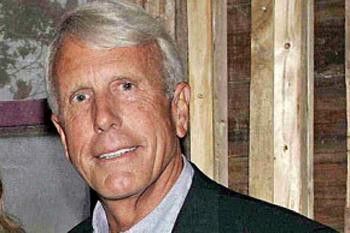
Senior personnel of Uline Inc., a giant US shipping materials distributor, comprise Cruz’s third major donor. The firm is run by Richard and Elizabeth Uihleine, who previously supported Governor Scott Walker in Wisconsin.
Under Walker’s watch, according to reporter Lisa Kaiser, the local government curbed public employee unions, slashed taxes for the wealthy, cut funding for public education, expanded “taxpayer-funded vouchers for private schools”, borrowed massively to finance “freeway mega-projects,” and pushed for “arduous abortion regulations.”
Cruz is just the latest purchase in the Uihleines’ shopping spree for pliable far-right Republicans, which have received upwards of $5 million from the pair.
Overall, the bulk of Cruz’s campaign donations come from the real estate industry, Wall Street, big business, and fossil fuels.
Follow the money… and the guns
In contrast, Trump, makes much of the fact that he has not sought campaign donations from Wall Street, or anywhere else.
This is disingenuous, considering that Trump has millions of dollars in loans from a large swathe of major banks, such as Deutsche Bank, the Bank of New York Mellon, Merrill Lynch, Capital One, Chevy Chase, UBS, Royal Bank America, and numerous others.
His financial disclosures also reveal that he holds extensive stock investments across a wide range of industries encompassing “technology companies, financial firms, defense contractors, and energy… Trump also owns stock in many well-known companies including Apple, Nike, Whole Foods, Google, Philip Morris, Raytheon, Facebook, and Morgan Stanley, among others.”
The convergence of interests is undeniable — and is also evident in the fact that many of Trump’s presidential campaign managers are Tea Party veterans. Three of his senior campaign staffers, Corey Lewandowski, Matt Ciepielowski and Stuart Jolly, held directorships at Americans for Prosperity, a Tea Party fundraising and advocacy group founded by David Koch.
Given Trump’s own personal wealth, the top donors for his 2016 presidential bid have given modest amounts — but what’s interesting is the interest groups they represent.
The two foremost are people from Manchester Financial Group, a real estate firm based in San Diego, and Aon Corp., a British multinational insurance corporation.
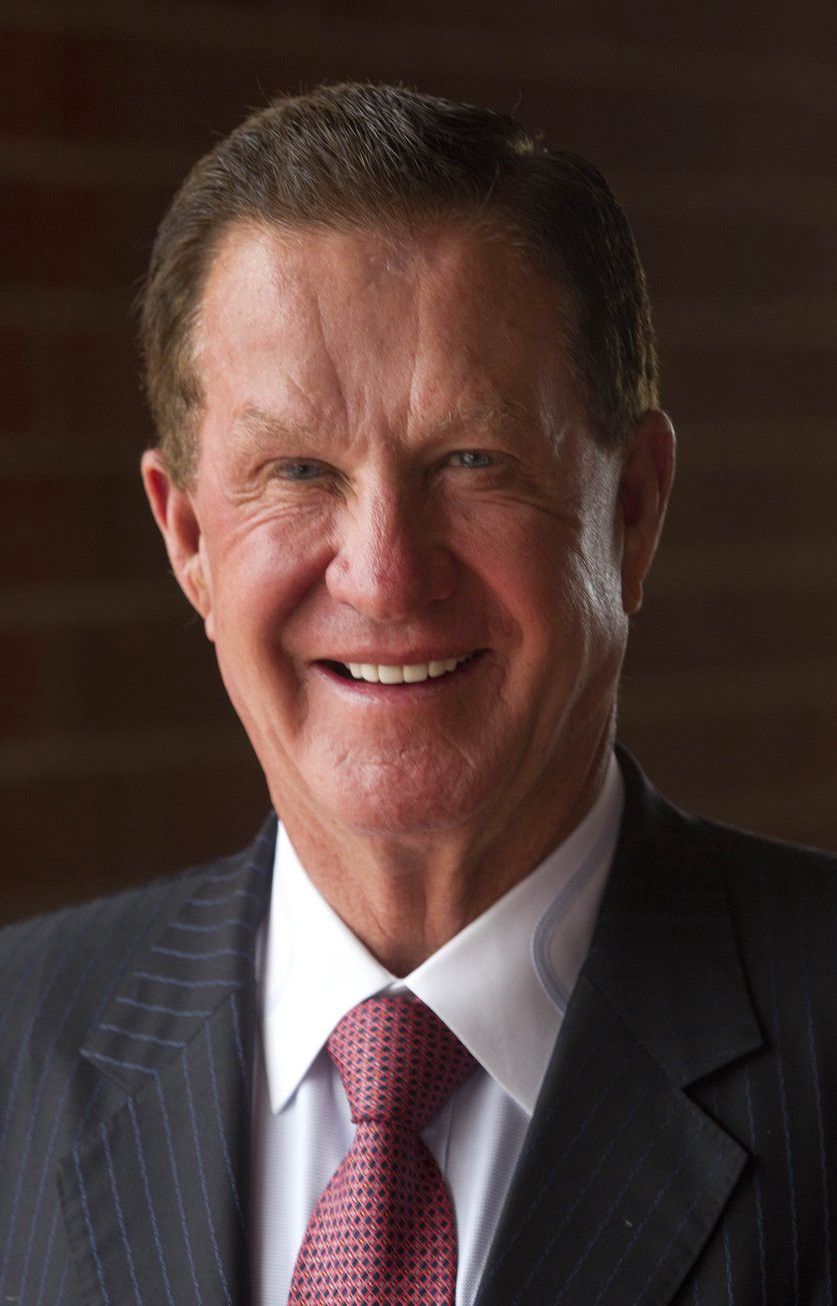
The Manchester Financial Group is owned and chaired by ‘Papa’ Doug Manchester, a property developer who owned the San Diego Union-Tribune newspaper from 2011 until 2015, and a longtime Republican Party donor who funded a campaign to ban same-sex marriage through a state constitutional amendment.
For all Trump’s bluster against Islam, which, he claims, “hates us”, his top donor’s firm appears to have a keen interest in the region. In 2012, reporter Rob David revealed he had been unable to contact Doug Manchester because:
“He’d spent a long day with a group of CEOs touring oil fields at the invitation of the Saudi kingdom.”
Islam hates us, but Christ knows we can still make a quick buck from Islam’s oil.
Aon Corp. is the largest insurance broker in the world, encompassing risk management and terrorism; reinsurance and investment banking; and human resources consulting and outsourcing services. Due to the firm’s focus on risk, conflict, and terrorism, its profits tend to grow in proportion to rising fears of unrest and insecurity.
The last year has seen Aon’s profits dip by one percent from a net income of $1.43 to $1.42 billion. Its total revenues decreased by 3 percent to $11.7 billion, particularly due to a profit slump in Aon’s Risk Solutions division of 5 percent to $7.4 billion.
Perhaps that’s why Aon personnel are not only Trump’s top second donor, but also major financial backers of Americans for Peace, Prosperity and Security, Inc. (APPS), the defence contractor lobby group campaigning — successfully — to get all the Republican candidates to support a dramatic military escalation in Syria, including boots on the ground.
As Lee Fang of The Intercept reported:
“APPS was formed by current and former officials from Raytheon, BAE Systems, SAIC, and other major defense contractors. Lobbyists who represent the defense industry are also involved.”
Gaffney: neocon gun for Republican hire
So there can be little doubt that one of the most influential forces behind the American elections comprises the military-industrial complex.
This is exemplified in the extraordinary ideological reach of Frank Gaffney’s Center for Security Policy into the campaign teams of the leading Republican presidential candidates.
Though Gaffney’s hysterical theories about Muslims are rightly seen as part of a lunatic fringe — such as his belief that President Obama is a secret Muslim; or that the US Missile Defence Agency logo secretly includes an Islamic crescent and star — his organisation, the CSP, has and continues to be lavished with financial support from the military-industrial complex.
In 2004, a special report by the World Policy Institute described Gaffney’s rise to influence on the back of the defence sector:
“According to the Center’s own annual reports, it has received millions of dollars in corporate donations since its founding in 1988, which represents more than 25% of its total funding in the sixteen years it has been in existence. Corporate contributors to CSP have included Boeing, General Dynamics, Litton, Lockheed Martin, Northrop Grumman, Textron, and TRW, all major weapons contractors that benefit from the policies advocated by the Center.”
The rise of the Bush administration permitted Gaffney to see dozens of his CSP members granted senior positions across the US government. It was, in effect, a coup for his extreme brand of neoconservativism.
“With the 2000 election of George W. Bush, Gaffney’s Center moved from an outside advocacy group trying to influence policy to a friend of the administration,” noted the World Policy Institute.
“The Center’s web site brags that no fewer than 22 close associates or members of its advisory council now hold positions in the Bush administration, including the former Chair of the Center’s Board of Directors, Douglas Feith, now Undersecretary of Defense for Policy; J.D. Crouch, Assistant Secretary of Defense for International Security Policy, who has been involved in articulating the administration’s Nuclear Posture Review; and Richard Perle, former Chairman of the Defense Policy Board, to name a few.”
Longstanding recommendations on security policy advocated by the US military-industrial complex through the CSP for over a decade, were now finding their way into the Bush administration’s decision-making.
But as investigative journalist Jason Vest showed, even the Bush era’s arch-neocons quickly tired of Gaffney, seeing him as too hawkish even for them. One Bush era Pentagon official described him as “an overbearing gadfly” who had “worn out his welcome.”
Yet Gaffney’s CSP continues to retain support from private military contractors, receiving donations from Boeing, General Dynamics, Lockheed Martin, Northrup Grumman, Raytheon and General Electric as late as 2013.
These are among the topmost Pentagon contractors with close relationships to the US government, and which receive tens of billions of dollars in military contracts every year.
Most of the firms misleadingly denied having an “ongoing” relationship with the CSP, except Boeing — the second largest US government military contractor — which clarified that it:
“… supports organisations such as the Center for Security Policy because of work they do on issues of importance to our company.”
Like cauldronising the Middle East and criminalising American Muslims? Got it Boeing.
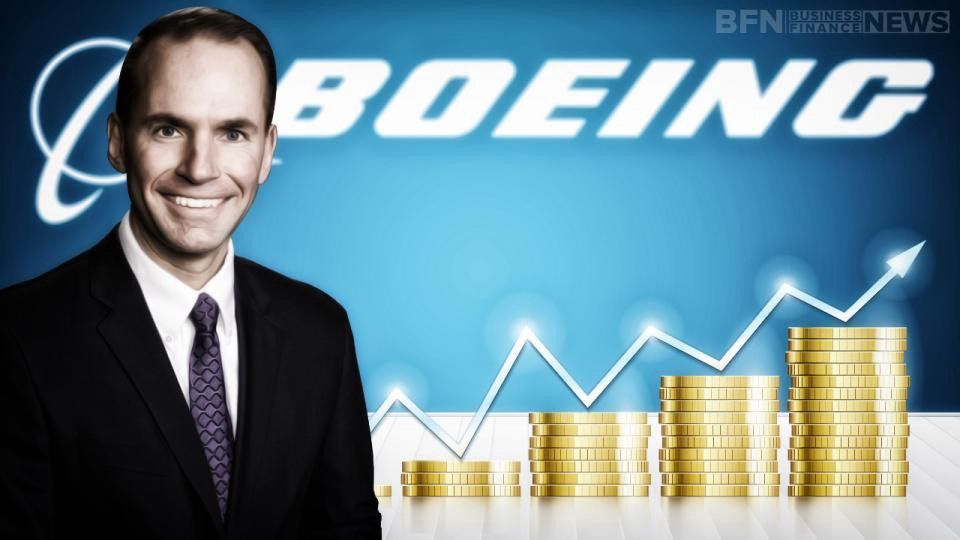
Hate is good for the business of war
Gaffney’s reach into the national security teams of the two front-running Republican candidates therefore speaks to a determined, and so far effective effort by the private defence sector to position itself to benefit whichever candidate gets elected.
CSP is obviously not the only or principal avenue for channeling such military contractor influence.
Last July, data compiled by the research group Maplight showed that defence contractors were topping campaign donor lists, and contributing bigger amounts than any other industry to political action committees (PACs). The biggest PAC donations came from Honeywell, Northrop Grumman, Raytheon and General Electric. As Fortune magazine reported Fortune:
“Raytheon’s bottom line took something of a beating last year in the tough, budget-constrained US defense market. However, multiple ongoing conflicts around the globe have helped Raytheon shop its wares abroad with relative success.”
Well ain’t that just dandy!
While Democrat contender Hillary Clinton is hardly a peacenik, election data shows that the US military-industrial complex wants Team Gaffney to win — but is hedging its bets between Democrats and Republicans.
The top twenty 2016 campaign contributions from defence contractors or their PACs, employees or owners, have all overwhelmingly favoured Republican candidates. The biggest pro-Republican contributions came via Lockheed Martin, Northrop Grumman, Boeing, Raytheon and General Dynamics — the very same contractors on Gaffney’s CSP donor list in 2013.
The same firms donated to the Democrats, but by dramatically smaller margins.
Of course, between Cruz, Trump, Clinton and Sanders, Hillary Clinton received the most campaign contributions from the US defence sector.
But the presidential hopeful who overall received the most donations from the US military-industrial complex, far more than Clinton, was Jeb Bush — who, of course, is no longer in the race. Clinton came a close second after Bush, followed by Republicans, in this order: Lindsey Graham, Ted Cruz, then Ben Carson.
So overall, the US military-industrial complex appears to have hedged most of its bets in the Republican camp, with a whopping 73% of all campaign donations from the defence sector going to Republican presidential candidates, and just 27% going to the Democrats — most of which went to Clinton, a fraction going to Sanders.
Clinton, though, is almost certainly most favoured by Wall Street, receiving $9,867,881 in campaign donations from the ‘finance/insurance/real estate’ sectors. That’s three times as much as what Cruz has received at $3,281,912.
Trump, in comparison, received very little of these direct donations, but it’s clear that his national security committee remains indirectly coopted by Frank Gaffney, who still appears to be in the pocket of the most neoconservative wings of the defence industry.
It’s also clear that Trump’s personal financial affairs and investments tie him indelibly to both Wall Street and the military-industrial complex, however leery they might be of his inconsistent public pronouncements.
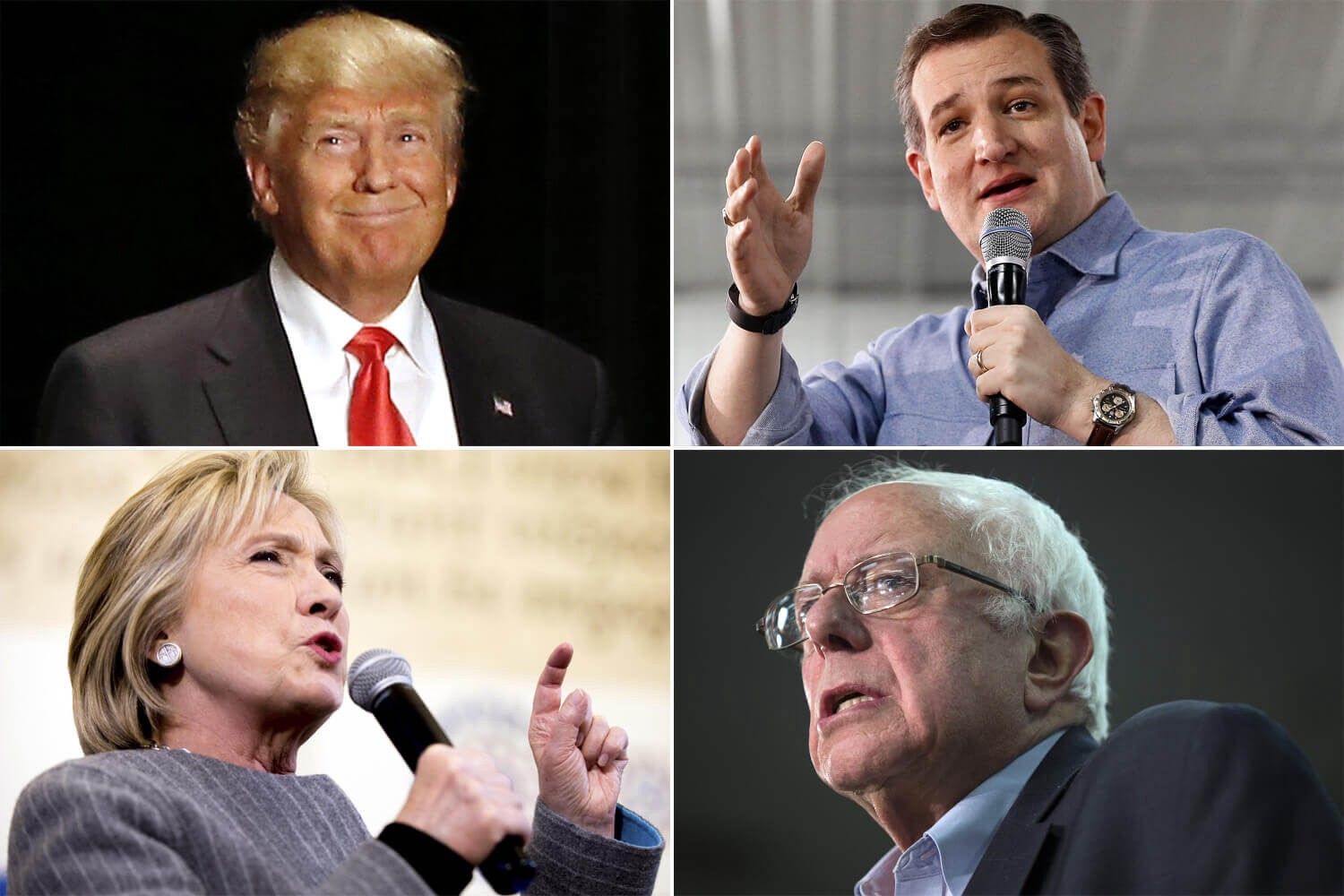
Where does the ultimate wild card, Bernie Sanders, fit into all this? Of all the candidates, he appears genuinely to be the least compromised from a funding perspective. Industry-wise, his biggest pool of donations has come from that nefarious class of evildoers known as ‘old people’ (classified as retired), followed by groups and individuals in education, law, health and business.
His biggest direct donors are from people at some of the largest technology firms, Alphabet, Inc. (which owns Google), Apple, Microsoft, Amazon.com, IBM Corp, Intel Corp, Facebook Inc, and several major universities — but the quantities are, relative to the sums other donor-dependent candidates are getting, tiny. His largest donation, via Alphabet Inc., is $132,228.
In contrast, the biggest spenders on Sanders campaign did not donate to him directly, but advocated for him themselves. By far his single biggest backer in this respect, investing $1,967,609 in his cause to date, has been National Nurses United.
The American elections, therefore, represent a struggle not just between people and power, but within power.
And while strategic splits within the American oligarchy are hardly novel, a powerful interlocking section of Wall Street, the military-industrial complex, and the fossil fuel industry represented by the Republican frontrunners is experiencing an alarming process of radicalisation, manifested in intensified demands for violence via warmongering abroad and bigotry at home.
While Sanders appears to be the least compromised, and thus potentially most able to represent the interests of average Americans, the unfolding electoral battle between Cruz, Trump and Clinton is playing out within the framework of Big Money, Big Oil and Big Guns.
Clinton is the Wall Street favourite, but the US military-industrial complex — though happy to work with her — most wanted to see another Bush in the White House, and is now settling for the next best thing in the Republican camp.
It’s perhaps no surprise, then, that the most ardent support networks behind Trump and Cruz include retrograde neoconservative bigots with close ties to the private defence sector.
There are convenient synergies between the increasingly simplistic black-vs-white vision of the world espoused by the leading Republican presidential hopefuls, and the defence firms whose profit margins are symbiotically dependent on escalating global conflicts.
Fear of the Other has become integral to the military-industrial complex’s arsenal of political ascendancy, precisely because it’s the most effective stick with which to repeatedly beat American citizens, who are increasingly disillusioned with the political process, into submission to corporate oligarchy.
It works something like this: Don’t tell them that you plan to ensure the rich keep getting richer, while the poor get poorer; that you’ll achieve this by further destroying public spending, and siphoning taxpayers’ money into corporate welfare for the few; that you’ll expand mass surveillance, endless wars and the police-state while crushing fundamental constitutional freedoms, and criminalising minorities; that when the next economic crash hits, you’ll bailout Big Money and Big Oil all over again at the expense of average citizens, while brutalising workers and cracking down on protests; that you’ll exploit the ‘war on terror’ to shut down political freedoms and criticism of government.
Just terrify them with the spectre of the ‘fifth column’, until, enraged, they clamour for violent, discriminatory election promises to be executed.
That’s the Trump and Cruz game-plan — and it’s backed by the ‘three stooges’ of Big Money, Big Oil and Big Guns. As for Clinton, she’s not exactly inimical to Big Guns, and she’s certainly all for Big Money.
So whoever wins the White House later this year, it’s difficult to avoid the verdict that it won’t be the American people.



